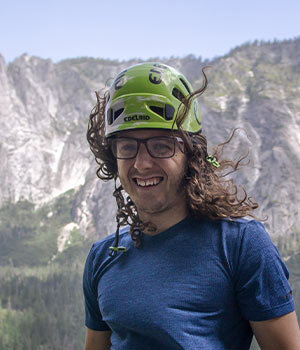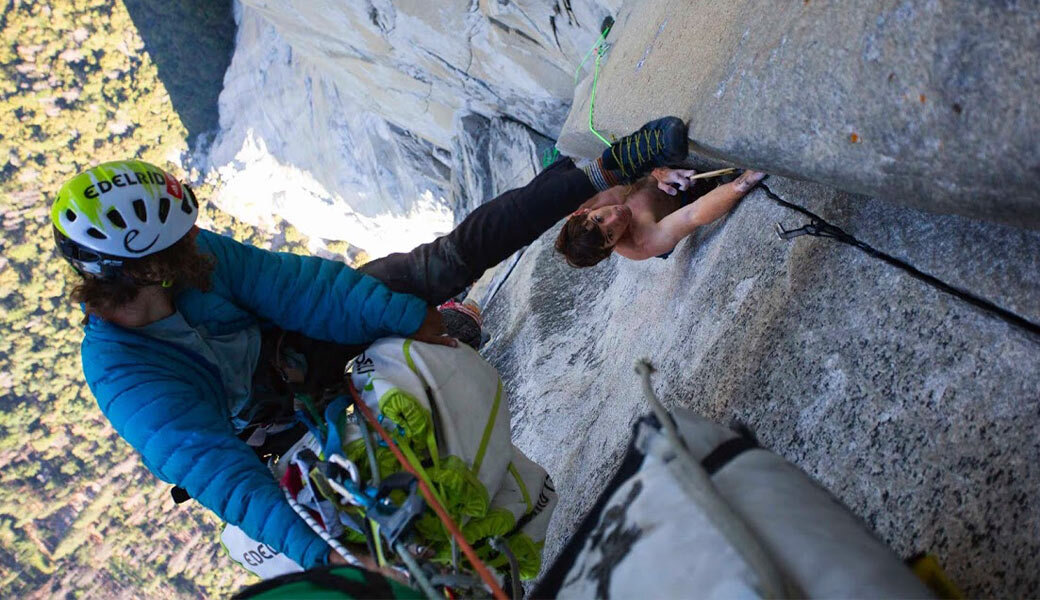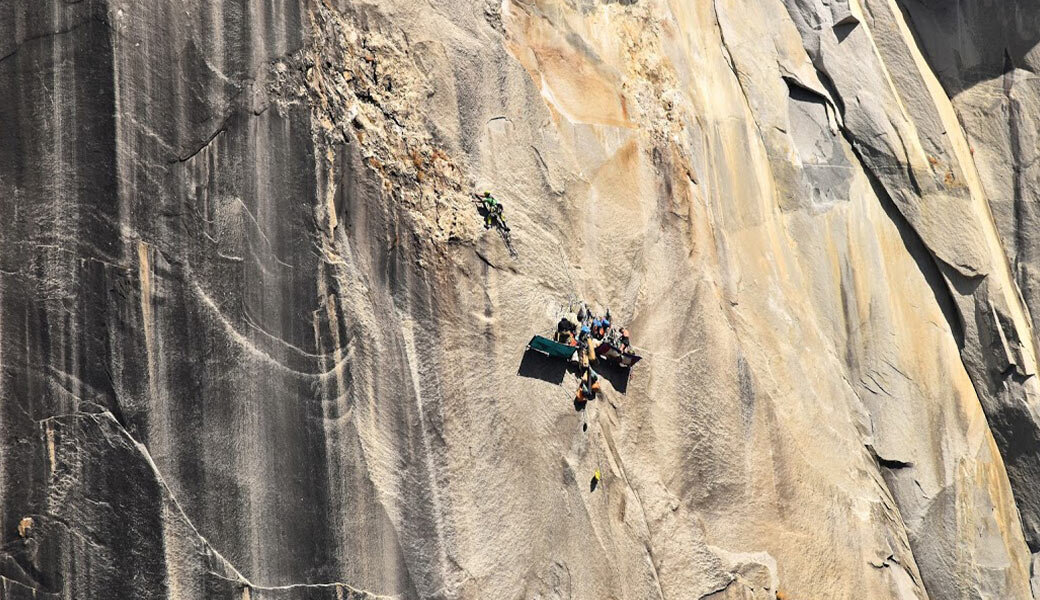Favorite type of climbing (bouldering, sports climbing, trad, etc.):
BIG WALL !
When and how did you get into climbing and what kept you interested / fascinated in the sport?
As a child I was a competitive freestyle skier and racer. While getting into backcountry skiing as a teenager I found that getting up the mountains was scarier and more difficult than skiing down. I began to train in the climbing gym in order to access backcountry ski zones. I found my first trad mentor in Alaska while working in Denali National park the summer after highschool. I have enjoyed problem solving, freedom and self reliance in the vertical wilderness ever since.
Who was your childhood hero and do you consider yourself a role model now? Does it influence you at all that other people look up to you?
As a child Shane Mcconkey was my idol. He was at the forefront of his sport and would constantly push the boundary of what is possible. I learned to entertain my imagination, and realize anything can be done if you want it badly enough. I have become a Bigwall mentor, Freeride ski coach and Climbing coach since his passing. I think giving back to the younger generation and teaching them to ask "How can we do this" instead of "Why can't it be done" as a great way to honor his legacy.
What were the most important milestones in your life so far, both in climbing and in everyday life? Did you immediately recognize them as such or only later on?
Many milestones in my life can be seen geographically. I moved from Denali National Park, Bend Oregon, Lake Tahoe, and to Yosemite National Park. Though I was changing places and growing, there are a few events in my life that shaped who I am even more. The milestone stages in my climbing life were: my first Bigwall (Washington Column), my first El-Cap route(Lurking Fear in a day), getting injured high on South Seas and having to self rescue during a storm, helping Tommy and Kevin on the Dawn Wall, the last ascent of the Waterfall route and coming face to face with death, getting introduced to climbing photography thanks to Kevin Jorgeson in the Bugaboos, winning the People's Choice Award in the Banff Mountain Film Festival for videography in "The Trilogy", and establishing the first Natural Highline on ElCap
What were your greatest failures / setbacks / injuries? How did you cope with them and how did you come back from them?
I tore my ACL and Meniscus last year. Much like bigwalls you have to learn to take setbacks in stages and not think about the summit. Just enjoy the process, no matter how painful or tedious it seems.
What is your favorite climbing related story / experience?
I watched Honnold fully commit his weight to a small cam I placed during one of his speed ascents with Tommy. He was about 80 ft run out and I placed it to help him pass our haul bags. He comes running up the changing corners, gives me a look and asks if the piece is any good. I tell him "I think it's pretty bomber" and without hesitation he jumps on to it not thinking twice if it would hold or not. Thats alot of trust you have in strangers Honnold.




